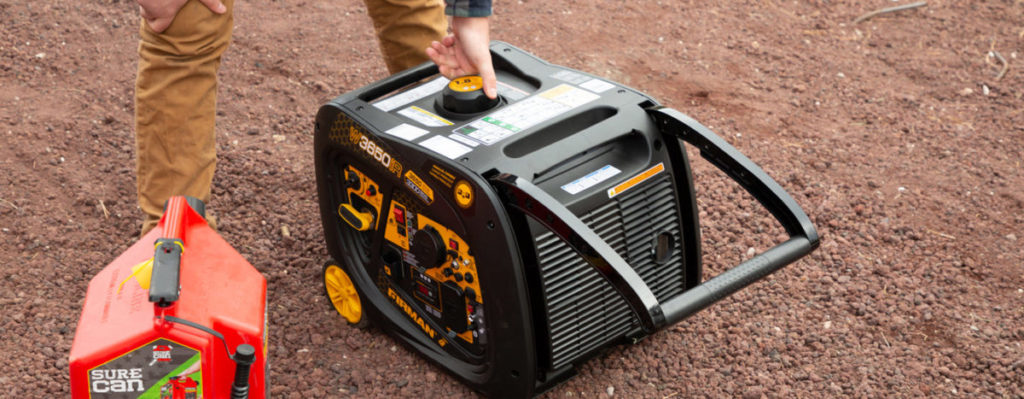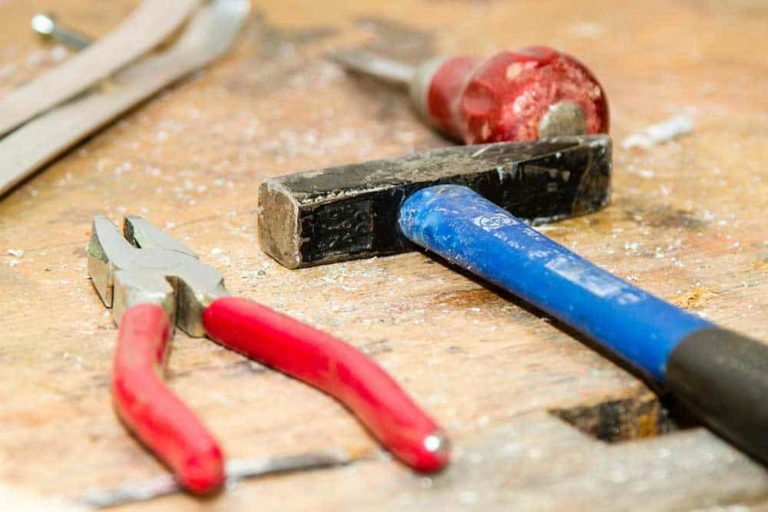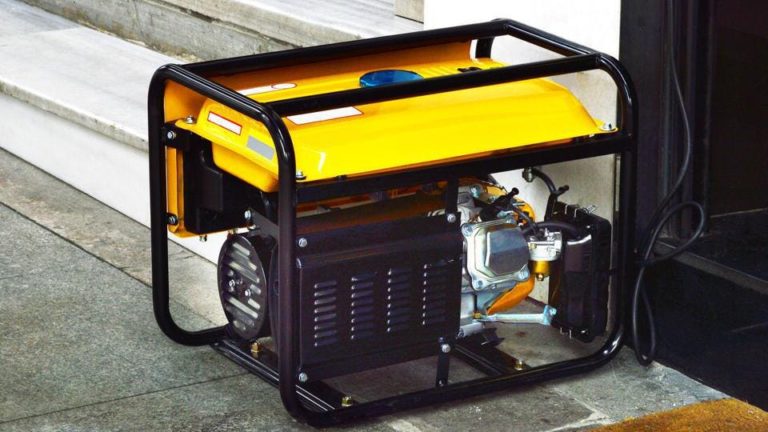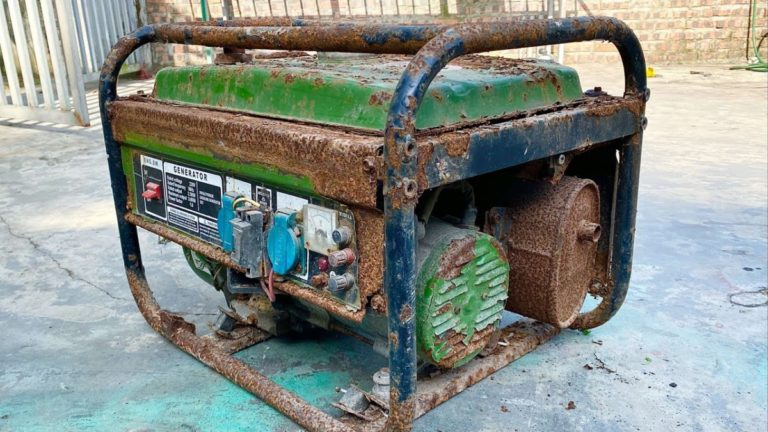To ensure your generator runs efficiently and reliably, regular maintenance is a must.
Proper upkeep can help extend the lifespan of your investment, reduce downtime, and maintain peak performance.
From cleaning to oil changes, this guide will provide you with expert tips on how to properly maintain your generator for optimal efficiency.
Regular Oil Changes
Make sure that the generator’s oil is changed every 25-50 hours of operation, depending on the type of oil used and the manufacturer’s recommendations. Fresh oil helps maintain the engine’s performance and prolongs its lifespan.
The frequency of oil changes depends on the type of oil used and the manufacturer’s recommendations, but it is typically every 25-50 hours of operation.
Fresh oil helps to keep the engine running smoothly by lubricating moving parts, cooling the engine, and preventing wear and tear on internal components.
It is important to use the correct type of oil for your generator, as specified in the owner’s manual, to ensure optimal performance and to prevent damage to the engine.
Changing the oil regularly will help to prolong the lifespan of your generator and prevent costly repairs down the line.
Clean Air Filter
Replace the air filter every 100-200 hours of operation, depending on the usage and conditions. A clean air filter ensures proper airflow and helps maintain the engine’s performance.
To ensure optimal performance and longevity of your generator, it’s essential to replace the air filter every 100-200 hours of operation.
The air filter plays a important role in maintaining proper airflow to the engine, which can affect fuel efficiency, power output, and overall engine health.
Dirty or clogged air filters can restrict airflow, cause engine overheating, and lead to premature wear and tear on engine components.
By replacing the air filter regularly, you can ensure that your generator operates at its best and prevent costly repairs down the line.
A clean air filter can help improve fuel efficiency, as a dirty filter can cause the engine to work harder and use more fuel.
Overall, replacing the air filter every 100-200 hours of operation is a simple and cost-effective way to maintain your generator’s performance and longevity.
Proper Grounding
Make sure that the generator is properly grounded to prevent damage from electrical surges and to minimize the risk of fire. Check the grounding cable and connectors regularly.
Proper grounding is important for preventing damage to your generator and minimizing the risk of fire.
Electrical surges can cause significant damage to the machine and its components, so it’s essential to ensure that the generator is properly grounded.
This involves checking the grounding cable and connectors regularly to ensure that they are securely connected and not loose or damaged.
You should make sure that the grounding cable is properly sized and rated for the generator’s output voltage and current.
Proper grounding will help to protect your investment, prevent costly repairs, and ensure safe operation of the generator.
Regular maintenance and inspection of the grounding system will also help to identify and address any potential issues before they become major problems.
By taking these precautions, you can ensure that your generator operates safely and reliably, providing you with clean, reliable power for your home or business.
Lubrication
Lubricate the generator’s moving parts regularly, according to the manufacturer’s recommendations. This includes the engine, gears, and bearings. Proper lubrication helps reduce wear and tear, prevents overheating, and prolongs the lifespan of the components.
Lubrication is a important aspect of maintaining your generator’s optimum performance and prolonging its lifespan.
It’s essential to follow the manufacturer’s recommendations for regular lubrication of the moving parts, which include the engine, gears, and bearings.
Proper lubrication helps reduce wear and tear on these components, preventing overheating and ensuring that the engine runs smoothly.
Without adequate lubrication, the engine may overheat, leading to premature wear of the parts, and potentially causing the engine to seize or fail altogether.
Moreover, proper lubrication helps to reduce friction, which in turn, reduces the amount of energy lost to heat, resulting in more efficient power generation.
Therefore, it is vital to lubricate your generator’s moving parts regularly, as specified by the manufacturer, to ensure that it operates at its best and lasts for a long time.
Battery Maintenance
If the generator has a built-in battery, ensure that it is properly maintained. Charge the battery regularly, and replace it every 5-7 years, depending on the type of battery and usage. A well-maintained battery ensures proper starting and reliable operation of the generator.
To ensure reliable and consistent performance of your generator, it is important to maintain the built-in battery properly.
Regular charging of the battery is essential to keep it in good condition and prevent loss of power.
It is recommended to charge the battery every 1-2 months, even if the generator is not in use.
It is important to replace the battery every 5-7 years, depending on the type of battery and usage.
This is because over time, the battery’s capacity to hold a charge will diminish, affecting the starting and running of the generator.
A well-maintained battery ensures proper starting and reliable operation of the generator, reducing the risk of unexpected power outages and ensuring uninterrupted power supply.
Proper battery maintenance is a small but important step in ensuring the longevity and optimal performance of your generator.
Cooling System Maintenance
Check the cooling system regularly, ensuring that the coolant is at the appropriate level and that the cooling fan is working properly. A properly functioning cooling system helps maintain the engine’s temperature and prolongs its lifespan.
Regular cooling system maintenance is important to ensure the longevity and proper functioning of your vehicle’s engine.
Checking the cooling system regularly can help prevent overheating, which can cause serious damage to the engine and its components.
To begin with, check the coolant level and ensure it is at the appropriate level.
Low coolant levels can lead to overheating, while excessive coolant levels can cause corrosion and damage to the engine.
Next, inspect the cooling fan to ensure it is working properly.
A faulty cooling fan can cause the engine to overheat, leading to costly repairs or even complete engine failure.
Look for any signs of leaks or damage to the cooling system hoses, water pump, and radiator.
Addressing any issues promptly can help prevent more expensive repairs down the line.
By performing regular cooling system maintenance, you can help prolong the lifespan of your vehicle’s engine and avoid costly repairs.
Electrical Connectors
Check the electrical connectors regularly, ensuring that they are clean, dry, and free of corrosion. Properly maintained electrical connectors help prevent electrical surges and ensure safe and reliable operation of the generator.
Electrical connectors are a important aspect of your generator’s performance and safety.
To ensure the reliable operation of your generator, it is essential to regularly check and maintain the electrical connectors.
This includes cleaning and inspecting the connectors for any signs of corrosion or moisture.
If you notice any issues, replace the connectors immediately to prevent electrical surges and damage to the generator.
Ensure that all connections are tight and secure to prevent loose connections that can cause electrical faults.
By properly maintaining the electrical connectors, you can ensure safe and reliable operation of your generator, and avoid costly repairs or replacement.
* Clean and dry electrical connectors are essential for safe and reliable operation.
* Inspect the connectors regularly for signs of corrosion or moisture.
* Replace any damaged or worn-out connectors to prevent electrical surges and damage to the generator.
* Make sure all connections are tight and secure to prevent loose connections that can cause electrical faults.
* Proper maintenance of electrical connectors can help extend the life of your generator and avoid costly repairs or replacement.
Routine Inspections
Conduct routine inspections of the generator to identify and address any potential issues before they become major problems. These inspections should include the fuel system, air filter, spark plug, and other critical components. By regularly inspecting the generator, you can detect and address any problems early on, preventing downtime and prolonging the lifespan of the equipment.
To ensure optimal performance and longevity of your generator, it is important to conduct routine inspections of the equipment.
These inspections should cover all critical components, including the fuel system, air filter, spark plug, and other sensitive parts.
By regularly checking and addressing any potential issues before they become major problems, you can prevent downtime and extend the lifespan of your generator.
For example, a clogged air filter can decrease fuel efficiency and lead to engine stalling, but by replacing it regularly, you can prevent these problems from occurring.
Similarly, a dirty spark plug can cause the engine to run rough and decrease its lifespan, but by cleaning or replacing it as needed, you can maintain the generator’s performance and extend its lifespan.
In addition, checking the fuel system and ensuring that the fuel is clean and at the correct level can prevent issues such as fuel starvation, which can cause the generator to shut down unexpectedly.
By regularly inspecting the generator and addressing any potential issues promptly, you can ensure that your equipment remains in good working condition, minimizes downtime, and extends the lifespan of your generator investment.
Want More? Dive Deeper Here!
Hey there! If you’re the type who loves going down the rabbit hole of information (like we do), you’re in the right spot. We’ve pulled together some cool reads and resources that dive a bit deeper into the stuff we chat about on our site. Whether you’re just killing time or super into the topic, these picks might just be what you’re looking for. Happy reading!






